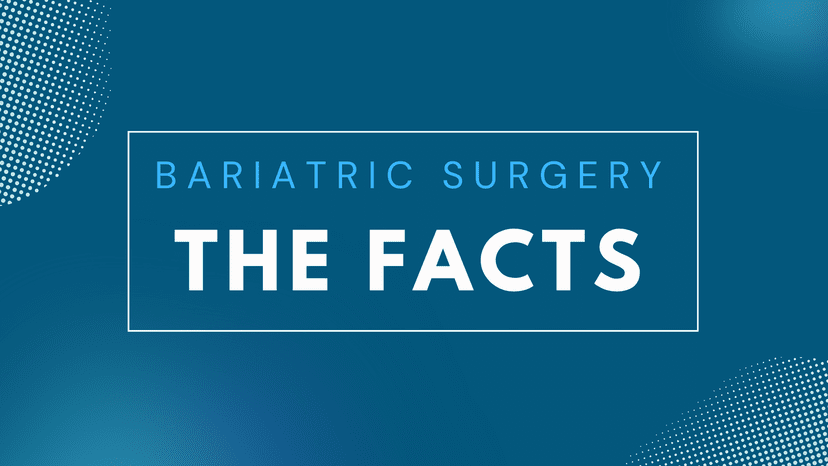What are the pills for life you need to take after weight loss surgery?

Understanding Nutritional Deficiencies Post-Surgery
When considering the journey after weight loss surgery, it's of paramount importance not to overlook the possibility of nutritional deficiencies. These deficiencies can arise due to significant changes in the digestive system and a potential decrease in nutrient intake deriving from a reduced food intake after surgery. Therefore, understanding these potential deficiencies sets the foundation for comprehending the subsequent necessity of ongoing supplementation to maintain optimal health.
Common Nutritional Deficiencies After Surgery
After undergoing weight loss surgery, some individuals may experience nutritional deficiencies. Despite the positive end goal of these procedures - sustainable weight loss and improved overall health - the method of bypassing part of the digestive system or restricting food intake can lead to some unanticipated side effects. These include deficiencies in vital nutrients such as:
- Vitamins; particularly the B vitamins, and vitamin D.
- Minerals; such as iron, calcium, and zinc.
- Protein; which is vital for structural and biochemical functions within our body.
These nutrients are typically obtained from our daily diet, but with the drastic reduction in food intake and changes in the digestion process, acquiring sufficient amounts to meet bodily needs becomes a significant challenge.
The Impact of Altered Digestion on Nutrient Absorption
Weight loss surgery, such as gastric bypass or gastric sleeve, bring about fundamental changes to your digestive system. Altered digestion post-surgery means that less surface area of the stomach and small intestine is available to absorb nutrients. Coupled with reduced food intake, the risk of nutritional deficiencies goes up. Nutrient absorption is very much dependent on the function of our digestive system, as the nutrients have to be effectively broken down and transferred into our bloodstream. This process may be compromised after surgery, contributing further to potential nutritional gaps.
Why Supplementation Is Necessary
In light of the challenges surrounding nutrient absorption and diet post-surgery, supplementation becomes an integral part of maintaining an overall healthy nutrient profile in the body. It can help replenish nutrients that may not be adequately obtained from the diet alone, ensuring sufficient levels for normal metabolic functions.
While this may be viewed by some as an 'extra step' in their dietary routine, it is crucial to view it as a necessary one. Understanding and accepting the importance of supplementation following weight loss surgery is one fundamental 'pill' for life, ensuring that the journey of health and wellness post-surgery is not undermined by preventable nutritional deficiencies. It's vital to always consult with healthcare providers when considering supplementation to obtain personalized advice that takes into account individual dietary needs and health conditions.
This understanding of nutritional deficiencies, the impact of altered digestion, and the necessity of supplementation is crucial. Armed with this knowledge, individuals following weight loss surgery can continue their journey with confidence, knowing they are focusing on their complete nutritional health and long-term wellbeing.
Essential Supplements After Weight Loss Surgery
Weight loss surgery, also known as bariatric surgery, often necessitates a lifelong commitment to diet changes. This includes an essential regimen of vitamin and mineral supplements. The specific supplements are recommended not just to compensate for potential deficiencies due to the physical alteration of the digestive system, but to support overall health and prevent potential nutritional deficiencies.
Vitamin and Mineral Supplements for Post-Surgery Health
After bariatric surgery, the body's ability to absorb nutrients is often reduced. This makes it vitally important to supplement your diet with specific vitamins and minerals. Here are some of the key supplements you should consider:
-
Vitamin B12: This plays a critical role in nerve function and the creation of red blood cells. Deficiency can lead to anemia and neurological complications.
-
Iron: Iron is crucial for the production of hemoglobin, a protein that allows red blood cells to carry oxygen to your body's tissues. Iron-deficiency can also lead to anemia.
-
Calcium: Required for healthy bones and teeth. Being deficient in calcium over the long term can lead to osteopoenia or osteoporosis.
-
Vitamin D: Works hand-in-hand with calcium to maintain bone health. It's also essential for immune function.
-
Multivitamins: These make up for any nutritional deficiencies by providing a broad range of necessary vitamins and minerals.
Dosages and Forms of Supplements
The dosages and forms that these supplements should take post-surgery can vary and should be discussed with a healthcare professional. Most likely, you will need more than the usual recommended dietary allowance (RDA). It's common for these supplements to be prescribed in higher than normal doses to account for decreased absorption. The form of the supplement can also make a difference. Certain forms may be easier for your altered digestive system to absorb than others. For instance, chewable or liquid forms are often recommended since they're easier to digest.
Monitoring and Adjusting Supplement Needs Over Time
Lastly, remember that your supplement needs might change over time. It's crucial to have regular blood tests to monitor your nutrient levels. These tests can help identify any deficiencies or over-supplementation, allowing your healthcare provider to adjust your regimen accordingly.
In conclusion, the journey doesn't end with weight loss surgery. It's a lifelong commitment to ensuring your body gets the necessary vitamins and essential minerals. With careful planning and careful monitoring post-surgery, you can avoid nutritional deficiencies and continue living a healthy life.
Refer to the advice of healthcare professionals regarding the specific supplements and dosages for your specific needs. Individual needs can vary based on health status, the type of bariatric procedure you've had, and other individual factors. You must keep a regular check on your nutrient intake for a smooth post-surgery life, rich in well-being and healthiness.
Medications and Long-term Care Considerations
Post-bariatric surgery life brings substantial changes, both physically and emotionally. While the dietary adjustments and exercises are frequently talked about, there's another aspect that requires equal attention - the need for certain medications and regular medical follow-ups.
Managing Post-Surgical Conditions with Medication
After an individual undergoes weight loss surgery, dealing with post-surgical conditions becomes a part of their journey. It's not uncommon to experience gastrointestinal disturbances such as acid reflux, which arises due to changes in the stomach and esophagus's functioning. To manage this, patients may require medications like proton pump inhibitors (PPIs).
Moreover, there can be pain or discomfort stemming from the surgical procedure itself or the adjustments the body goes through. Adequate pain management is vital and may be facilitated by prescribed analgesics. However, it's crucial to adhere to the prescribed dosage and frequency to avoid potential complications such as addiction.
The Role of Regular Medical Check-ups in Long-term Care
Regular medical check-ups play a crucial role in ensuring long-term health post-surgery. Your healthcare provider can observe your overall progress, monitor for any potential complications, and make necessary changes to your care plan.
Regular follow-ups enable healthcare professionals to conduct thorough evaluations of your nutritional status. This is essential as individuals who've undergone weight loss surgery may face nutritional deficiencies due to reduced calorie intake and altered food absorption. Consequently, adjustments to dietary plans and supplement intake can be made based on the measured nutritional parameters.
Moreover, these visits provide an excellent opportunity for healthcare professionals to assess your mental well-being. Emotional health is a significant aspect of the post-surgical journey, and regular check-ups can help identify any signs of depression, anxiety, or eating disorders.
Adjusting to Life with Daily Supplements and Medications
Just as you've adapted to a new eating pattern post-surgery, adjusting to a regimen that involves taking daily supplements and medications is equally important. Weight loss surgery can affect the absorption and processing of certain vitamins and minerals, requiring additional supplementation.
Most commonly, vitamin B12, iron, calcium, and vitamin D are required in higher amounts post-surgery. However, the specific requirements vary from person to person and should be tailored based on regular blood tests.
Remember, these supplements are not alternatives to a balanced diet but rather a supplement to healthy eating. Regular consumption of these vitamins and minerals is critical in preventing deficiencies and promoting long-term health.
Taking medications and supplements becomes a new norm post-surgery. It might seem overwhelming initially, but over time it becomes part of a routine. Involve a healthcare provider in your journey, keep your follow-up appointments, be diligent about your supplements, and you're on your way to optimal long-standing health post-bariatric surgery.
In Summary
This blog post has explored the intricate connections between weight loss surgery, nutritional deficiencies, altered digestion, and the need for dietary supplements. Following bariatric surgery, your ability to absorb certain nutrients may decrease due to structural changes in your digestive system, leading to potential nutritional deficiencies. To maintain a healthy nutrient profile and ensure your long-term wellness, a carefully designed supplementation regimen is often necessary.
To tackle this, the following plan of action and steps can help you embark on this journey safely and efficiently:
Plan of Action
- Educate Yourself: The first step is gaining an understanding of potential nutritional deficiencies post-surgery, and the role digestion plays in nutrient absorption.
- Consult a Healthcare Provider: As all individuals have unique dietary needs and health conditions, it's essential to discuss any changes in your diet or supplement regimen with a healthcare professional.
- Develop a Supplement Regimen: Depending on your individual needs, your healthcare provider may recommend a daily regimen of vitamin and mineral supplements. Typically, this includes vitamins B12, D, and a multivitamin supplement, as well as key minerals such as iron and calcium. The doses for each supplement will likely be higher than the general recommended dietary allowance (RDA).
- Monitor Your Nutrient Levels: Finally, regular blood tests to track your nutrient levels are a must. They will help identify any deficiencies and allow your healthcare provider to adjust your supplement regimen if needed.
Action Steps
- Research: Begin by understanding the nutritional changes that occur in your body post-surgery.
- Consultation: Schedule a consultation with your healthcare provider to discuss your specific dietary needs and the potential need for supplementation.
- Plan Creation: Together with your healthcare provider, create a pers
onalized supplement regimen. 4. Visit Pharmacy: Obtain the necessary supplements, ideally in chewable or liquid forms as they’re more easily absorbed. 5. Implementation: Start your supplement regimen as directed by your healthcare provider. 6. Continuous Monitoring: Schedule regular blood tests to monitor your nutrient levels.
In essence, bariatric surgery represents a new chapter in your life that signifies a commitment to better health. As arduous as the journey may seem, with continuous support from healthcare professionals, careful planning, monitoring, and attention to your nutritional intake, you can avoid deficiencies and continue living a healthy, fulfilling life. Remember, this journey isn't about quick fixes, but rather about promoting sustainable behaviors and practices that support long-term wellness.




